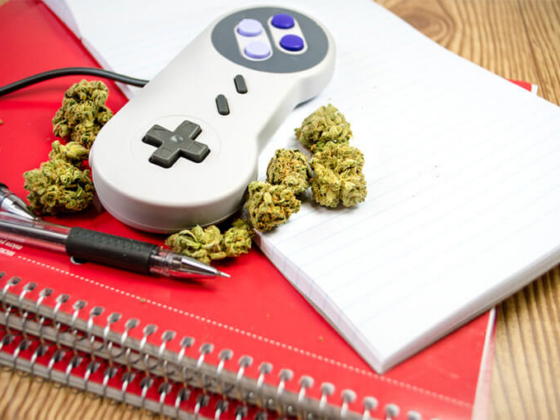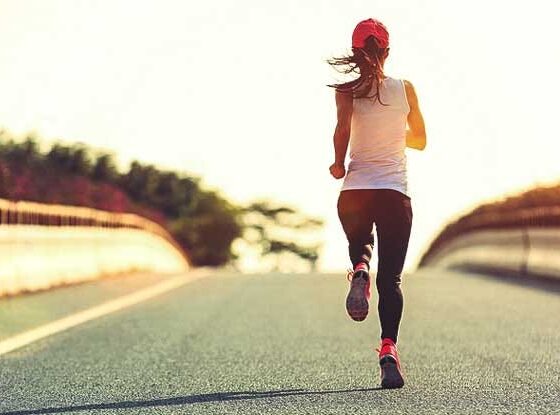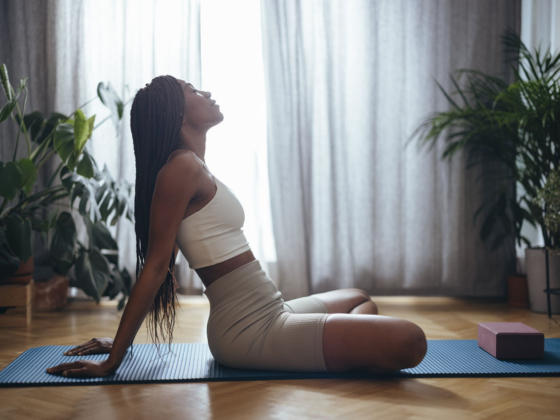Many people use THC (tetrahydrocannabinol) to relax and alleviate various symptoms. However, for some, THC can lead to increased stress and anxiety, which can be both puzzling and distressing. This comprehensive article aims to explore the reasons behind this phenomenon, addressing the most frequently asked questions about why THC might induce anxiety instead of relaxation. Each section will delve into specific questions, providing detailed explanations and insights.
What are the possible reasons THC causes anxiety in some people?
THC is known for its psychoactive effects, which can vary significantly from person to person. Several factors contribute to why some individuals experience anxiety rather than relaxation when using THC:
- Genetics: Certain genetic markers may make individuals more susceptible to anxiety when exposed to THC.
- Dosage: Higher doses of THC are more likely to induce anxiety, especially in those who are not accustomed to its effects.
- Method of Consumption: Smoking, vaping, edibles, and tinctures all deliver THC differently, impacting how it affects the user.
- Set and Setting: The environment and mental state of the user play a crucial role in how THC affects them. Stressful or unfamiliar surroundings can heighten anxiety.
- Tolerance Levels: Regular users may develop a tolerance to it, requiring higher doses for the same effect, which can inadvertently lead to anxiety.
- Strain Type: Different cannabis strains have varying levels of THC and CBD. High-THC, low-CBD strains are more likely to cause anxiety.
- Previous Experiences: Past negative experiences with THC can predispose individuals to anxiety during future use.
- Mental Health Conditions: Those with pre-existing anxiety disorders or other mental health conditions are at a higher risk of experiencing anxiety from it.
- Metabolism: Individual differences in metabolism can affect how quickly THC is processed, influencing the intensity and duration of its effects.
- Interactions with Other Substances: Concurrent use of other substances, such as alcohol or medications, can interact with THC and exacerbate anxiety.
Understanding these factors can help users manage their THC consumption better and minimize the risk of anxiety.
How can I manage anxiety if I want to continue using THC?
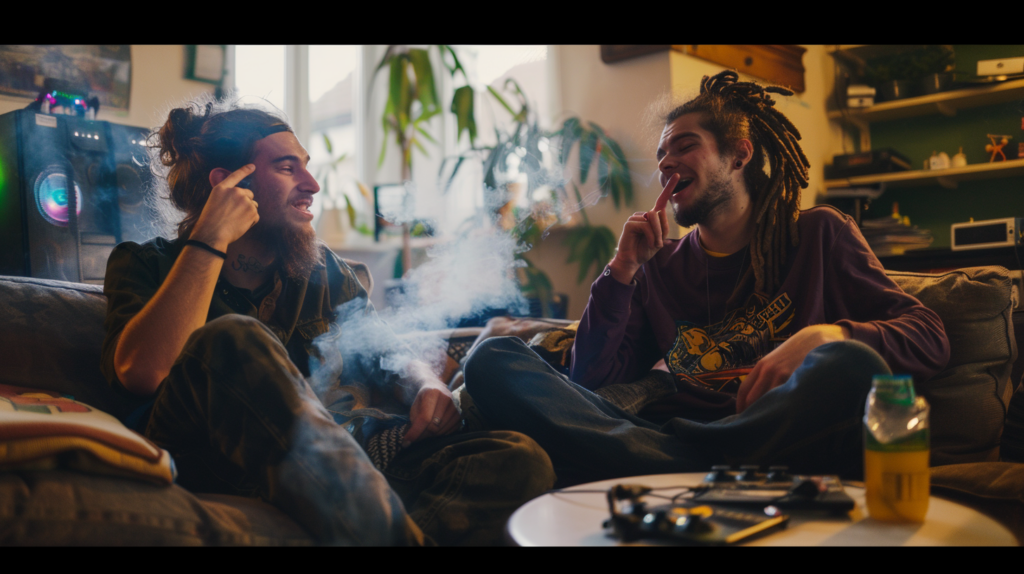
Managing anxiety while using THC involves several strategies that can help mitigate its effects:
- Start with Low Doses: Begin with a small amount of THC and gradually increase as needed, paying attention to how your body reacts.
- Choose the Right Strain: Opt for strains with a balanced THC to CBD ratio or those with higher CBD content, as CBD can counteract some of THC’s anxiety-inducing effects.
- Mindful Consumption: Be aware of your environment and mental state before using THC. Choose a comfortable, familiar setting.
- Hydration and Nutrition: Staying hydrated and having a balanced meal can help stabilize your body’s response to THC.
- Relaxation Techniques: Practice deep breathing, meditation, or other relaxation techniques before and after consuming THC.
- Support System: Use it with trusted friends or loved ones who can provide comfort and support if you experience anxiety.
- Limit Use of Other Substances: Avoid mixing it with alcohol or other drugs, as this can amplify anxiety.
- Regular Breaks: Taking breaks from THC use can help reset your tolerance and reduce the likelihood of anxiety.
- Consult a Professional: If anxiety persists, consider speaking with a healthcare professional for personalized advice and potential alternatives.
- Journaling: Keep a journal to track your THC use and its effects. This can help identify patterns and adjust your consumption accordingly.
Implementing these strategies can help you enjoy the benefits of THC while minimizing its potential for causing anxiety.
Are there specific strains of cannabis that are less likely to cause anxiety?
Cannabis strains vary widely in their THC and CBD content, as well as other cannabinoids and terpenes that contribute to their effects. Some strains are known to be less likely to cause anxiety:
- Harlequin: A high-CBD, low-THC strain that is known for its calming effects.
- ACDC: Another high-CBD strain that offers relaxation without the intense psychoactive effects of THC.
- Cannatonic: A balanced strain with equal parts THC and CBD, providing mild euphoria and relaxation.
- Granddaddy Purple: Known for its soothing effects, this strain has a higher CBD content that can help mitigate anxiety.
- Blue Dream: A balanced strain that offers relaxation without overwhelming psychoactive effects.
- Northern Lights: An indica-dominant strain known for its calming and sedative effects.
- Jack Herer: A sativa-dominant strain with a balanced THC to CBD ratio, offering a clear-headed and uplifting experience.
- Lemon Haze: A sativa strain with a higher CBD content, providing a mellow and relaxing effect.
- Cherry Wine: A high-CBD strain known for its calming properties.
- Sour Tsunami: A CBD-rich strain that helps alleviate anxiety and stress.
Choosing the right strain can make a significant difference in your experience with THC and help reduce the likelihood of anxiety.
How does THC interact with the endocannabinoid system to cause anxiety?
THC interacts with the endocannabinoid system (ECS), a complex cell-signaling system that plays a role in regulating various physiological and cognitive processes, including mood, stress, and anxiety. Here’s how THC’s interaction with the ECS can lead to anxiety:
- CB1 Receptors: THC binds to CB1 receptors in the brain, which are involved in regulating mood and anxiety. Overstimulation of these receptors can lead to anxiety and paranoia.
- Amygdala Activation: The amygdala, a part of the brain involved in emotional processing, can become hyperactive under the influence of it, leading to heightened anxiety and fear responses.
- Neurotransmitter Release: THC can alter the release of neurotransmitters such as serotonin and dopamine, which play a role in mood regulation. Imbalances can contribute to anxiety.
- Hippocampal Function: THC affects the hippocampus, which is involved in memory formation. Disruption in hippocampal function can lead to confusion and anxiety.
- Stress Response: THC can impact the hypothalamic-pituitary-adrenal (HPA) axis, which regulates the body’s stress response. Dysregulation of this axis can lead to increased anxiety.
- Individual Differences: Genetic variations in the ECS can influence how individuals respond to it, making some more prone to anxiety.
- Endocannabinoid Levels: THC can disrupt the balance of natural endocannabinoids in the body, affecting mood and anxiety levels.
- Cognitive Effects: THC’s impact on cognitive functions, such as perception and attention, can lead to anxiety if users feel a loss of control.
- Tolerance Development: Over time, regular THC use can lead to tolerance, requiring higher doses for the same effect, which can increase the risk of anxiety.
- CBD Interaction: CBD, another cannabinoid, can modulate the effects of it on the ECS, reducing anxiety. However, low-CBD strains may not provide this balancing effect.
Understanding the interaction between THC and the ECS can help users better manage their consumption to avoid anxiety.
What are the psychological effects of THC that can lead to anxiety?
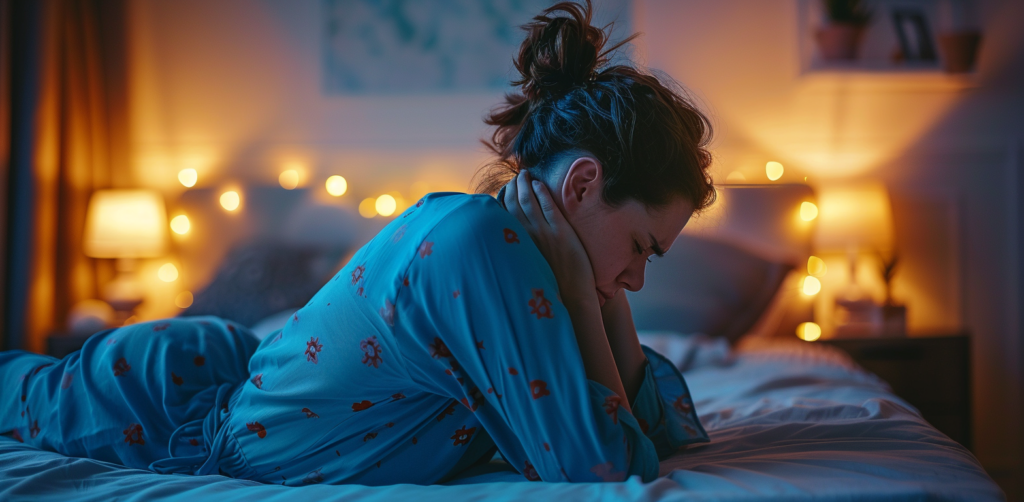
THC’s psychoactive effects can lead to various psychological responses that contribute to anxiety:
- Paranoia: THC can induce paranoia, causing users to feel excessively suspicious or fearful.
- Altered Perception: Changes in perception, such as time distortion and heightened sensory awareness, can be unsettling and lead to anxiety.
- Loss of Control: Feeling a loss of control over thoughts and actions can cause anxiety and panic.
- Memory Impairment: Short-term memory impairment can lead to confusion and anxiety.
- Hallucinations: In high doses, THC can cause hallucinations, which can be frightening and anxiety-inducing.
- Emotional Intensity: THC can amplify emotions, making users more susceptible to anxiety if they are already feeling stressed or worried.
- Derealization: Feeling detached from reality or one’s surroundings can be a disorienting and anxiety-inducing experience.
- Social Anxiety: it can exacerbate social anxiety, making users feel self-conscious or uncomfortable in social situations.
- Cognitive Overload: Excessive stimulation of cognitive processes can lead to anxiety and mental fatigue.
- Mood Swings: Rapid mood swings induced by it can contribute to feelings of anxiety and instability.
Understanding these psychological effects can help users anticipate and manage potential anxiety when using THC.
How does the dosage of THC impact anxiety levels?
The dosage of THC plays a critical role in determining whether it induces relaxation or anxiety. Here’s how dosage impacts anxiety levels:
- Low Doses: Low doses of THC are more likely to produce mild euphoria and relaxation without causing significant anxiety.
- Moderate Doses: Moderate doses can provide a balanced effect but may still cause anxiety in sensitive individuals.
- High Doses: High doses are more likely to induce anxiety, paranoia, and other negative psychological effects.
- Individual Sensitivity: Individual sensitivity to THC varies, with some people experiencing anxiety at lower doses than others.
- Tolerance: Regular users may develop a tolerance to THC, requiring higher doses for the same effect, which can increase the risk of anxiety.
- Method of Consumption: Different consumption methods (smoking, vaping, edibles) deliver THC differently, impacting dosage and its effects on anxiety.
- Onset and Duration: Edibles have a delayed onset and longer duration, which can lead to prolonged anxiety if the dose is too high.
- Microdosing: Microdosing involves taking very small amounts of THC, which can provide therapeutic benefits without causing anxiety.
- Incremental Increase: Gradually increasing the dose allows users to find their optimal level without experiencing anxiety.
- Combination with CBD: Combining THC with CBD can help mitigate the anxiety-inducing effects of higher THC doses.
Finding the right dosage is essential for managing anxiety and enjoying the benefits of THC.
What role do terpenes play in THC-induced anxiety?
Terpenes are aromatic compounds found in cannabis that contribute to its flavor, aroma, and effects. Some terpenes can influence how THC affects anxiety:
- Myrcene: Known for its sedative effects, myrcene can help reduce anxiety and promote relaxation.
- Limonene: This citrus-scented terpene has mood-enhancing properties and can help alleviate anxiety.
- Linalool: Found in lavender, linalool is known for its calming effects and can help reduce anxiety.
- Caryophyllene: This spicy terpene interacts with CB2 receptors and has anti-anxiety properties.
- Pinene: With a pine-like aroma, pinene can help improve focus and reduce anxiety.
- Terpinolene: This terpene has a fresh, floral scent and can provide calming effects.
- Humulene: Known for its earthy aroma, humulene has anti-inflammatory and anti-anxiety properties.
- Ocimene: This sweet, herbal terpene can help uplift mood and reduce stress.
- Geraniol: Found in roses, geraniol has calming and anti-anxiety effects.
- Nerolidol: With a woody aroma, nerolidol can help promote relaxation and reduce anxiety.
Choosing cannabis strains with specific terpenes can help tailor the effects and reduce the likelihood of anxiety.
How does the method of THC consumption affect anxiety levels?
The method of THC consumption significantly influences its effects on anxiety:
- Smoking: Provides quick onset but can lead to anxiety if too much is consumed at once.
- Vaping: Similar to smoking but with potentially fewer respiratory risks; rapid onset can still induce anxiety.
- Edibles: Have a delayed onset and longer duration, which can lead to prolonged anxiety if the dose is too high.
- Tinctures: Allow for precise dosing and quick onset, making it easier to control anxiety levels.
- Topicals: Do not enter the bloodstream in significant amounts, so they are unlikely to cause anxiety.
- Capsules: Provide a consistent dose but have a delayed onset, similar to edibles.
- Transdermal Patches: Offer a controlled, steady release of THC, reducing the risk of sudden anxiety.
- Dabbing: Involves high concentrations of THC and can easily induce anxiety in sensitive individuals.
- Beverages: Similar to edibles, with delayed onset and prolonged effects that can lead to anxiety if overconsumed.
- Inhalers: Provide precise dosing and rapid onset, allowing for better control over anxiety.
Choosing the right method of consumption can help manage anxiety levels and enhance the overall experience with THC.
What steps can I take to prevent anxiety when using THC?
Preventing anxiety when using THC involves several proactive steps:
- Educate Yourself: Understand the effects of THC and how it interacts with your body.
- Start Low, Go Slow: Begin with a low dose and increase gradually to find your optimal level.
- Choose the Right Strain: Opt for strains with higher CBD content and specific terpenes known for their calming effects.
- Mindful Consumption: Be aware of your mental state and environment before using THC.
- Stay Hydrated: Drink plenty of water to stay hydrated and help your body process THC.
- Have a Support System: Use THC with trusted friends or loved ones who can provide comfort if needed.
- Practice Relaxation Techniques: Engage in deep breathing, meditation, or other relaxation exercises.
- Limit Use of Other Substances: Avoid mixing THC with alcohol or other drugs.
- Take Regular Breaks: Give your body time to reset by taking breaks from THC use.
- Consult a Professional: Seek advice from a healthcare professional if anxiety persists.
Following these steps can help prevent anxiety and ensure a positive experience with THC.
Can CBD help mitigate the anxiety caused by THC?
CBD (cannabidiol) is known for its anxiolytic (anxiety-reducing) properties and can help counteract some of the anxiety-inducing effects of THC. Here’s how CBD can help:
- CB1 Receptor Modulation: CBD can modulate the activity of CB1 receptors, reducing the overstimulation caused by THC.
- Serotonin Receptors: CBD interacts with serotonin receptors, promoting a calming effect and reducing anxiety.
- Neurogenesis: CBD promotes neurogenesis in the hippocampus, which can help improve mood and reduce anxiety.
- Stress Response Regulation: CBD can help regulate the HPA axis, balancing the body’s stress response and reducing anxiety.
- Inflammation Reduction: CBD has anti-inflammatory properties that can help reduce inflammation-related anxiety.
- Neurotransmitter Balance: CBD can help restore balance to neurotransmitter levels, reducing the risk of anxiety.
- GABA Activity: CBD enhances GABA activity, promoting relaxation and reducing anxiety.
- Oxidative Stress Reduction: CBD’s antioxidant properties help reduce oxidative stress, which can contribute to anxiety.
- Endocannabinoid Balance: CBD supports the balance of endocannabinoids in the body, promoting a sense of well-being.
- Psychotropic Effect Reduction: CBD can reduce the psychoactive effects of THC, making the overall experience less anxiety-inducing.
Combining THC with CBD can provide a more balanced experience, reducing the likelihood of anxiety.
Conclusion
Understanding the factors that contribute to anxiety when using THC can help users manage their consumption more effectively. By choosing the right strains, methods of consumption, and implementing strategies to prevent anxiety, individuals can enjoy the benefits of THC while minimizing its potential negative effects. For those who continue to experience anxiety, seeking advice from a healthcare professional can provide additional support and guidance.
FAQs
1. What is THC and how does it work?
THC (tetrahydrocannabinol) is the primary psychoactive compound in cannabis. It works by binding to cannabinoid receptors in the brain, particularly CB1 receptors, influencing mood, perception, and various cognitive functions.
2. Can THC cause long-term anxiety disorders?
While occasional use of THC is unlikely to cause long-term anxiety disorders, chronic or excessive use, especially in susceptible individuals, may contribute to prolonged anxiety or exacerbate pre-existing anxiety disorders.
3. How does CBD counteract the effects of THC?
CBD (cannabidiol) can modulate the effects of THC by interacting with CB1 receptors and other pathways in the brain. It helps balance the psychoactive effects of THC, reducing anxiety and paranoia.
4. What should I do if I experience anxiety after using THC?
If you experience anxiety after using THC, try to remain calm and practice deep breathing. Staying hydrated, finding a quiet and comfortable environment, and engaging in relaxation techniques can help. If anxiety persists, seek support from a trusted friend or medical professional.
5. Are there any alternatives to THC for relaxation?
Yes, there are several alternatives to THC for relaxation, including CBD products, herbal supplements (such as chamomile or valerian root), meditation, exercise, and other stress-relief techniques.
6. Can microdosing THC help reduce anxiety?
Microdosing involves taking very small amounts of THC, which can provide therapeutic benefits without causing significant psychoactive effects. This approach may help reduce anxiety for some individuals.
7. How can I find the right THC dosage for me?
Finding the right THC dosage involves starting with a low dose and gradually increasing it until you find a level that provides the desired effects without causing anxiety. Keeping a journal to track your experiences can help you identify your optimal dosage.


